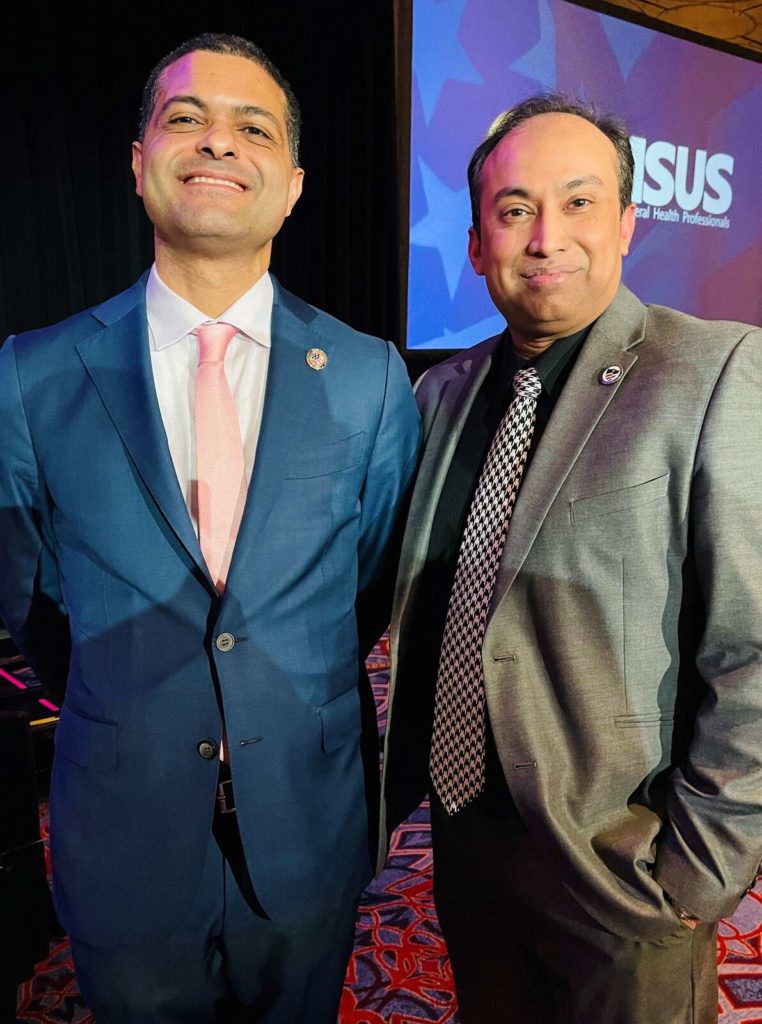Paula Grubbs Eagle Staff Writer
February 25, 2023

Thanks to six priorities recently created by the U.S. Veterans Health Administration, veterans are seeing exciting changes in the local VA.
Dr. Shereef Elnahal, Department of Veterans Affairs undersecretary of health, described the six initiatives during an online roundtable Tuesday.
On Friday, Dr. Aref Rahman, VA Butler Healthcare Health Care System’s chief of staff, confirmed the VA Butler Healthcare will wholeheartedly embrace the priorities in an effort to improve every veteran’s experience.
The first priority — hiring faster and more competitively — is aimed at improving the hiring process and making it seamless for a new employee to come on board within the VA Butler Healthcare, Rahman said.
A recent event known as an “onboarding surge” saw six or seven new hires in the VA Butler Healthcare system complete, in a single day, all the tasks required for employment — such as paperwork, blood work, photos and any other items required to begin working at the VA.
“Everything was done in a seamless manner in one day,” Rahman said.
Pay rates also were updated to match those of the Allegheny Health Network and UPMC, and initiatives were created to fill hard-to-recruit positions.
“The VA Butler Healthcare has adapted itself to be competitive in the hiring process,” Rahman said.
The second priority — connecting veterans to the soonest and best care — looks to allow veterans to access VA services in a timely manner, Rahman said.
In the VA Butler Healthcare system, patients in need of various health care services could receive them at a community-based outpatient facility, through telehealth, or at a primary care office in a neighboring county if necessary.
Rahman said a special VA team will ensure veterans receive the service or care they need and will go as far as to make an appointment with a community-based provider.
The team will ensure a record of the visit is sent to the VA Butler Healthcare to be included in the veteran’s record.
The third priority — serving veterans with military environmental exposure — has seen about 6,000 veterans screened at the VA Butler Healthcare.
Of them, 2,667 veterans, or 44%, tested positive for health issues due to exposure to hazards like Agent Orange, burn pits, Camp Lejeune toxins or other military hazards, Rahman said.
The veterans who test positive are then set up with benefit programs or a treatment plan, with more severe cases being treated at the VA in Pittsburgh.
Rahman said that VA Butler Healthcare has a three-phase plan to get any and all veterans screened for military environmental exposures.
The fourth priority — accelerating VA’s journey to a high-reliability organization (HRO) — aims at veterans receiving the most effective care with zero harm.
“We want to make sure the Veterans Health Administration becomes the safest health care system in the country,” Rahman said.
The HRO model is currently being promoted among employees at the VA Butler Healthcare by asking front line employees to identify anything that might hinder a veteran’s decision to come to the VA for services, whether it be a loose railing, a ramp that’s too steep or any other factor.
Employees are working on patient safety initiatives at the VA Butler Healthcare and sharing “safety stories” with other VA systems in the region and even among departments at the VA Butler Healthcare.
“For employees, through many classes and training, they are encouraged to register so they can be part of this HRO mentality,” Rahman said.
Rahman explained the fifth priority — supporting veterans’ whole health, their caregivers and survivors — as a comprehensive approach to health care.
When a veteran is evaluated, social factors are incorporated, such as their living situation, whether a caregiver needs support, if the veteran has enough food, and an accounting for gender, culture, language or religious preferences and differences, Rahman said.
He said a whole-health team at VA Butler Healthcare empowers caregivers and veterans in their care, sharing nutrition, exercise and other health-related information.
“We make it a collaborative approach so we can maximize the health and well-being of veterans,” Rahman said.
He said a recent survey of veterans using the Butler system revealed the whole-health program as a favorite.
The final priority — preventing veteran suicide — has a huge focus at VA Butler Healthcare.
“The VA Butler Healthcare System has made sure prevention of veteran suicide is one of our top priorities,” Rahman said.
He said caregivers at the local VA assess veterans for concerning behaviors, monitor veterans at risk, and initiate early intervention when necessary.
A 24-hour national crisis line is available to all veterans seven days per week, where professionals on the other end of the line will calm veterans, de-escalate situations, or dispatch help if necessary.
The VA Butler Healthcare offers multiple mental health programs, including evidence-based psychotherapy options, and recently created a team to provide support and resources to survivors, Rahman said.
“Butler is leading the way is identifying and preventing suicide in the VA,” he said.
Rahman invites all veterans to access the health care and other opportunities at the VA Butler Healthcare Health Care System.
“Since I became chief of staff in October, it’s been very exciting,” Rahman said. “We have the support from the government and leadership to make this a wonderful place for veterans to come and for employees to work.”